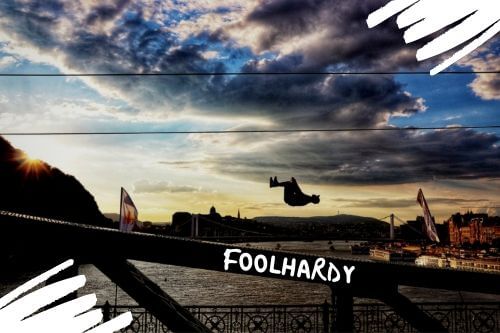
YouTube / iTunes / Spotify / Radio Public / Pocket Casts / Google Podcasts / Breaker / Overcast
Listen to ArtisanEnglish.jp posts & lesson intros here.
Word of the Day: Foolhardy
There’s a limit to everything.
The problem is some people always have to push things too far.
That’s the difference between being brave and foolhardy.
A brave person doesn’t show fear when faced with a dangerous situation.
They do, however, show caution.
Brave people hope for the best but prepare for the worst.
They are the ones who believe an ounce of prevention is worth a pound of cure and try not to make a rash decision.
It’s OK to push the limits, but you want to live to tell the tale afterwards.
Foolhardy people, on the other hand, are brave but foolish.
These are the people who take unnecessary risks and either wind up dead or place other people’s lives in danger.
Yes, it’s one thing to be brave, but it’s entirely another to be stupid.
Brave people climb Mt Everest after months of planning and preparation.
Yes, these people take risks, but they are calculated risks.
We, less adventurous types, may still think only crazy people would attempt something so dangerous.
At the same time, we acknowledge they are professionals because they have the appropriate equipment, training and preparation.
Foolhardy people recklessly go out of bounds while on a ski slope and become lost.
Even though the boundaries are marked and signs placed warning of danger, these people think they know better.
They never plan to spend a night in the forest because they never believe they will become lost.
These foolhardy people die unnecessarily due to a lack of planning, lack of preparedness or foresight and stupidity.
Now, we all do foolhardy things sometimes, but we are not all fools.
Only foolhardy people do reckless things all the time and somehow can convince others to join them.
The bottom line is the line between bravery and foolhardiness is planning, preparation and foresight.
Flesch-Kincaid Readability Test
This post is understandable by someone with at least an 8th-grade education (age 13 – 14).
On the Flesch-Kincaid reading-ease test, this post scores 67.
The higher the score on a scale of 0 – 100, the easier the passage is to read.

